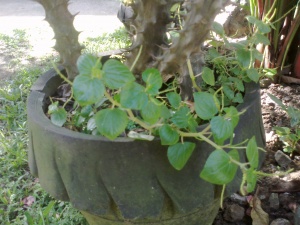LOG IN. UPLOAD PICTURES.
The Philippines has Zambo Mart to help propagate the Chavacano Language.
Difference between revisions of "Shiny Bush (Pansit-pansitan)"
| Line 34: | Line 34: | ||
File:Peperomia pellucida.jpg|Has analgesic properties | File:Peperomia pellucida.jpg|Has analgesic properties | ||
</gallery> | </gallery> | ||
<center>{{herbheader}}</center> | |||
Revision as of 18:05, 1 February 2015
Herbal Remedies and Medicinal Cures for Diseases, Ailments & Illnesses that afflict Humans and Animals
Aloe Vera •
Astragalus •
Bankoro •
Bilberry •
Bitter Gourd (Ampalaya) •
Bitter Orange •
Black Cohosh •
Cat's Claw •
Chamomile •
Chasteberry •
Coconut •
Cranberry •
Dandelion •
Echinacea •
Ephedra •
European Elder Tree •
Evening Primrose •
Fenugreek •
Feverfew •
Flaxseed •
Garlic •
Ginger •
Ginkgo •
Ginseng (Asian) •
Golden Seal •
Grape Seed •
Green Tea •
Hawthorn •
Hoodia •
Horse Chestnut •
Kava •
Lavender •
Licorice •
Malunggay Moringa Oleifera •
Milk Thistle •
Mistletoe •
Passion Flower •
Peppermint Oil •
Red Clover •
Ringworm Bush (Akapulko) – Cassia alata •
Saw Palmetto •
St. John's Wort •
Tawa Tawa •
Turmeric •
Valerian •
Yohimbe •
accept the bitter to get better
Shiny Bush (Pansit-pansitan) - Peperomia pellucida
Pansit-pansitan is a small, fleshy herb (about 40 cm tall), which grows in yards, nooks and other damp areas. The plant have green, heart-shaped leaves, fleshy stems that produce tiny flowers on a spike. The small, oblong-shaped fruits turn to black when ripe. Parts uses are leaves and stems.
Information verbatim from wikipedia: Peperomia pellucida is an annual, shallow-rooted herb, usually growing to a height of about 15 to 45 cm. it is characterized by succulent stems, shiny, heart-shaped, fleshy leaves and tiny, dot-like seeds attached to several fruiting spikes. It has a mustard-like odor when crushed. The family Piperaceae comprises about a dozen genera and around 3000 species. The genus Peperomia represents nearly half of the Piperaceae with the genus Piper making the bulk of the rest.
Common names
- source: wikipedia:
Throughout the Americas, it is known as pepper elder, silverbush, rat-ear, man-to-man, clearweed (North America); konsaka wiwiri (Guianas); coraçãozinho or "little heart" (Brazil); lingua de sapo, herva-de-vidro, herva-de-jaboti or herva-de-jabuti (South America). In Oceania, it is called rtertiil (Belauan); podpod-lahe or potpopot (Chamorro). In the different dialects of the Philippines, it is called pansit-pansitan or ulasimang-bato (Tagalog), olasiman ihalas (Bisaya), sinaw-sinaw or tangon-tangon (Bikol), and lin-linnaaw (Ilocano). In other parts of Asia, it is known as càng cua (Vietnam); pak krasang (Thailand); suna kosho (Japan); rangu-rangu, ketumpangan or tumpang angin (Bahasa/Malay); rinrin (Nigeria).
Medical Uses of Shiny Bush (Pansit-pansitan) - Peperomia pellucida
- Fresh juice made from stem and leaves controls eye inflammation or minor eye problems.
- Crushed whole plant as warm poultice, is effective for pimples, boils, and wound.
- Concoction of leaves used in treating fevers, headaches, sore throats, coughs, common colds, and diarrheas.
- Boiled leaves and stems is used for gout, arthritis, rheumatic pains, and conjunctivitis. The mixture is also effective in controlling high blood pressure.
- Juice made from leaves and stem, taken externally, is a good facial wash for skin problems.
Where Shiny Bush (Pansit-pansitan) - Peperomia pellucida Grows
This is a tropical plant and grows like weed in any damp area.
Pictures of Shiny Bush (Pansit-pansitan) - Peperomia pellucida
- Pictures taken by Frank Maletsky






